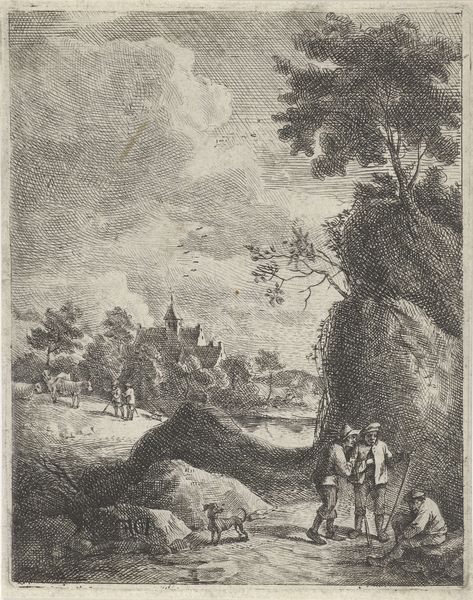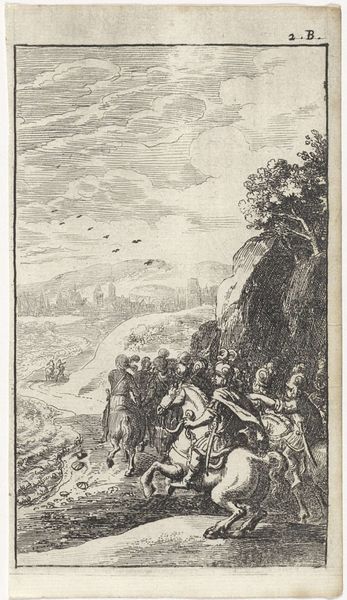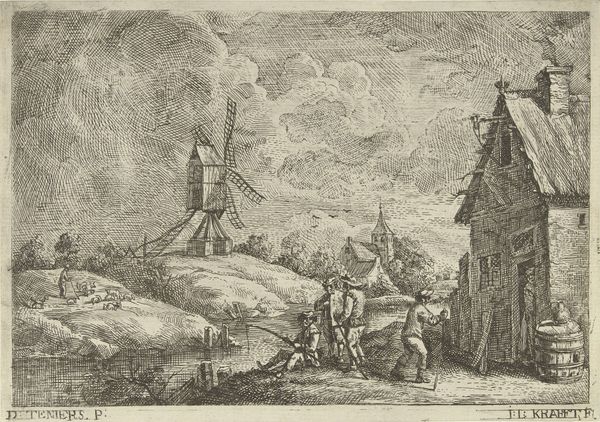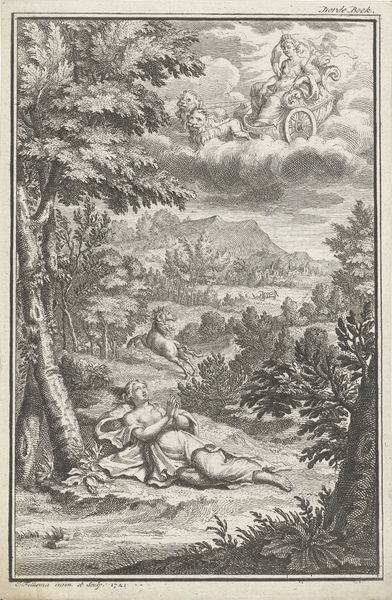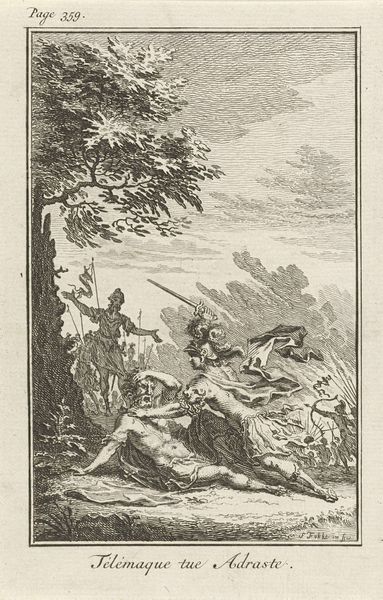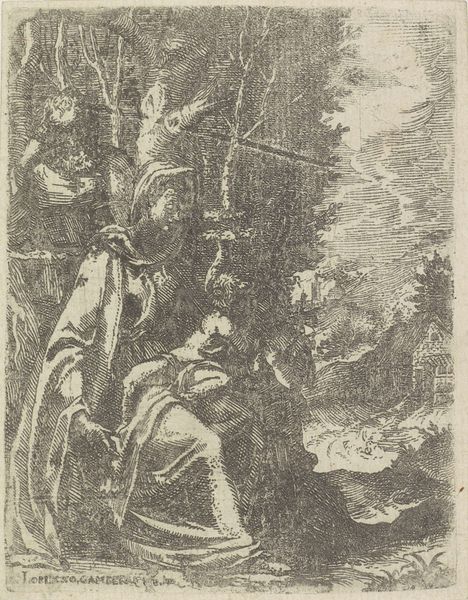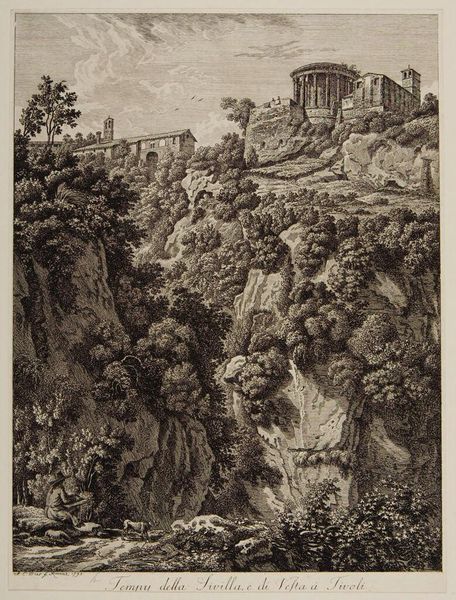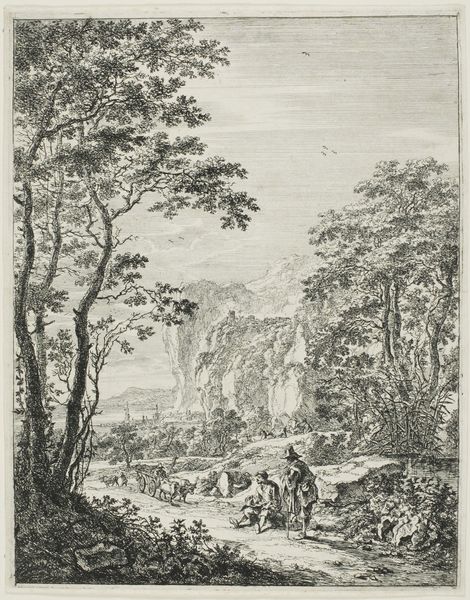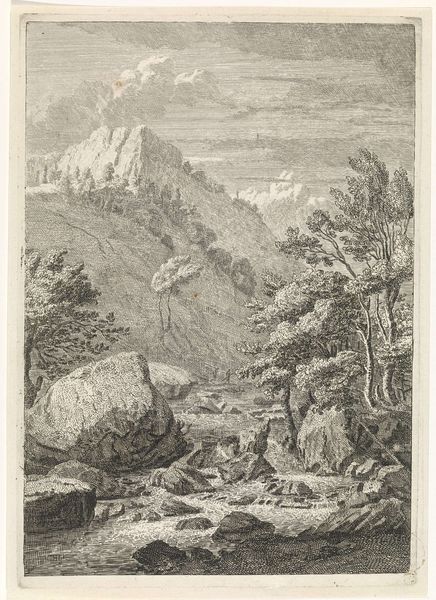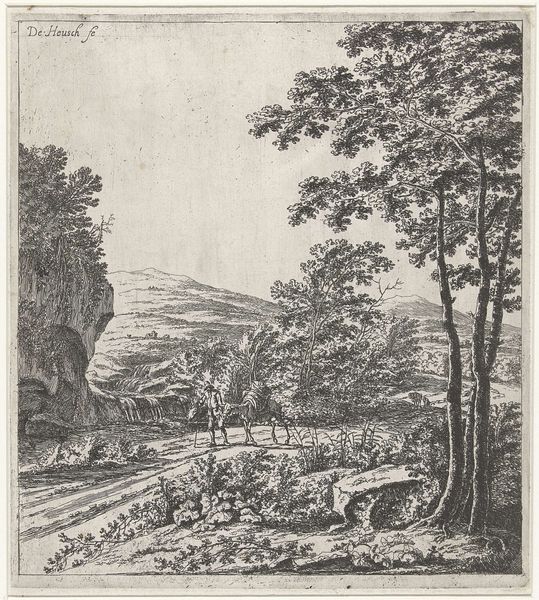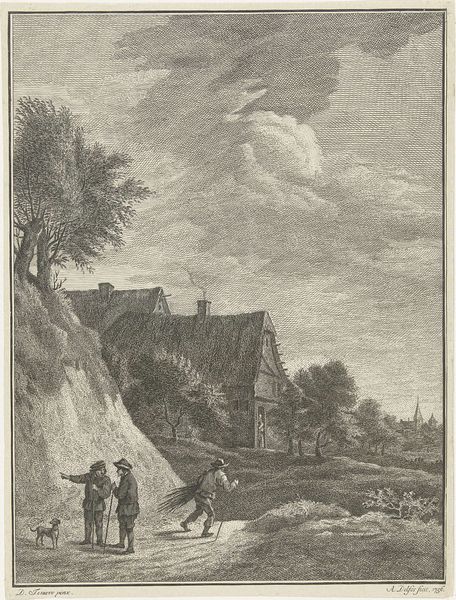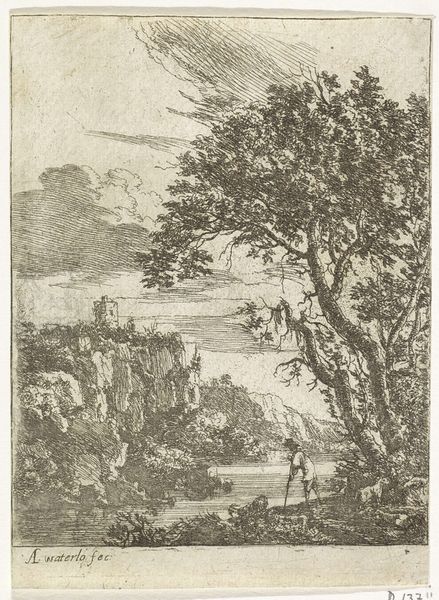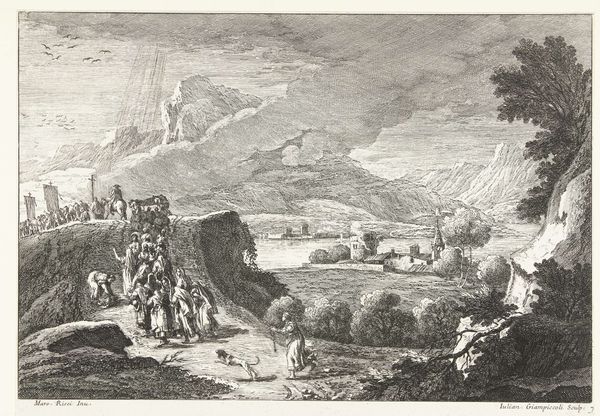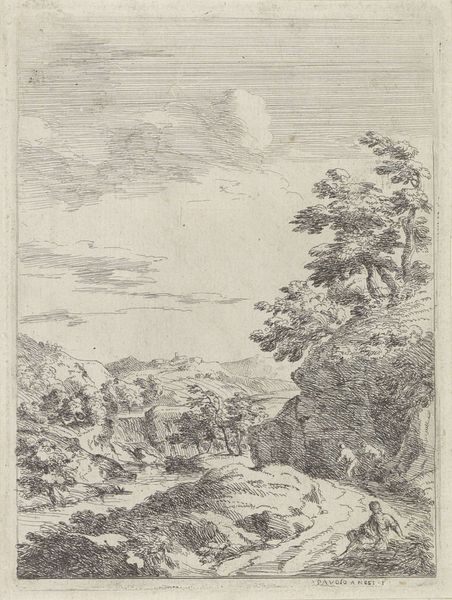
print, etching
#
baroque
# print
#
etching
#
dog
#
old engraving style
#
landscape
#
personal sketchbook
#
genre-painting
Dimensions: height 103 mm, width 91 mm
Copyright: Rijks Museum: Open Domain
Editor: This is "Landscape with a Village and Two Men by a Tree," an etching by Jan Lauwryn Krafft, sometime between 1704 and 1765. It’s amazing how much detail he manages to pack into such a small print! I'm drawn to the contrast between the tranquil village scene and the worn figures in the foreground. What do you see in this piece? Curator: This work encapsulates a specific era's view of rural life. Genre scenes like this, became incredibly popular as a form of visual social commentary, often romanticizing or moralizing the lives of common people. How does Krafft frame the public's perception of the working class? Does it humanize them, or perpetuate a distance between the urban viewer and rural experience? Editor: I hadn’t thought about it that way. I guess it does romanticize the experience a bit? Curator: Consider the context: the etching circulated among a burgeoning middle class, one increasingly disconnected from agricultural life. Prints like these helped shape a collective imagination. The composition itself, with the tree acting almost like a theatrical curtain, invites us into a picturesque narrative, wouldn't you say? And what is the function of genre painting at this moment, who and how is it for and to whom? Editor: Definitely! It's almost staged, like we're peeking into a little world. So, you're saying this image isn’t just a landscape; it's actively constructing an idea about the countryside for the people viewing it? Curator: Precisely. The artist uses imagery to address emerging societal views about rural life and labor in the context of shifting demographics and economic structures. This genre-painting aesthetic helped define the visual language of public space, contributing to how people understood their place in society. Editor: That’s fascinating! I’ll definitely look at genre paintings differently now, understanding the context. Curator: And understanding that art holds the unique capacity to both reflect reality and actively mold societal consciousness.
Comments
No comments
Be the first to comment and join the conversation on the ultimate creative platform.
